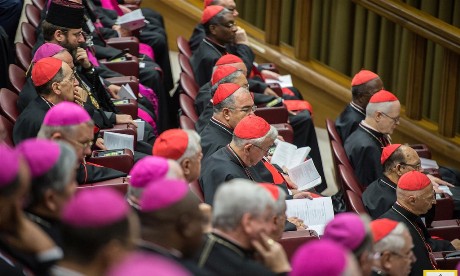The synod on the family is showing the Church has to start to rethink how it does theology, says a Canadian archbishop.
This is so it can truly address contemporary concerns, said Archbishop Paul-André Durocher.
In the past, theologians have usually deduced from general, sometimes idealised notions of God or humanity, following the methods of St Thomas Aquinas and Aristotle.
But the prelates at the synod on the family are using inductive reasoning to examine theology from the reality of families today, Archbishop Durocher said.
This starts from the real, lived experience of people, he explained.
Modern examples using inductive methods include pastoral and liberation theologies.
The prelates, the archbishop said, are “finding that the lived experience of people is also a theological source – what we call a theological source, a place of theological reflection”.
Church leaders are only beginning to learn how to do this, he noted.
But ongoing reflection will show where God is taking this, he said.
Archbishop Diarmuid Martin of Dublin said the Church can’t simply repeat what was said 20 years ago.
“[The synod] has to find new language to show that there can be development of doctrine, that there has been a willingness to listen to what emerged in the questionnaire that went out, and what was said in the synod itself,” he said.
The archbishop also said the synod fathers are struggling to tie together the notions of truth and mercy in their discussions.
“In the long term, I think, there’s fundamental agreement that they go together,” he said.
“It isn’t that truth is a dogma and mercy is something on the sidelines of Christian teaching. We have to find real ways of bringing these together and it’s not easy to.”
Sources
Additional reading- Bishops debate where does doctrine end and pastoral practice begin
- Bishops call for welcome of gays and better marriage preparation
News category: World.




